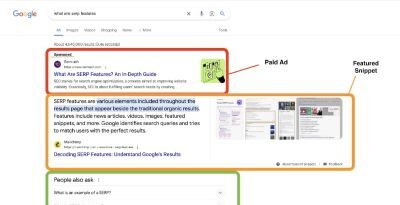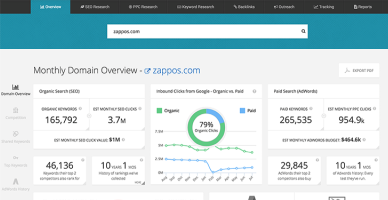Affiliate Marketing vs MLM: What’s the Real Difference?

When I first started looking for ways to earn extra income online, I kept running into two options: affiliate marketing and multi-level marketing (MLM). At first glance, they seemed pretty similar—both promised flexibility, low startup costs, and the potential to earn from home.
But once I dug deeper, I realized they couldn’t be more different. One focused on promoting products and earning commissions, while the other involved building a team and climbing a complex compensation ladder.
If you’re also trying to figure out which path is right for you, this post breaks down the key differences between affiliate marketing and MLM based on real-world experience—not hype.
Table of Contents:
- Affiliate Marketing vs MLM key differences summary
- Commission Structures
- What Is Affiliate Marketing?
- 10 Profitable Affiliate Marketing Niches (With Examples)
- Tips to Choose the Right Affiliate Marketing Niche
- What Is MLM (Multi-Level Marketing)?
- Popular MLM Niches (with Examples)
- Which Is Right for You?
- Conclusion: Final Thoughts on Affiliate Marketing vs MLM
- FAQ
Affiliate Marketing vs MLM key differences summary
You’ve probably heard of both, but what is the difference between MLM and affiliate marketing, and why does it matter if you’re just starting out? Here is a short comparison of both.
| Feature | Affiliate Marketing | MLM (Multi-Level Marketing) |
|---|---|---|
| Business Model | Promote products for commission | Sell and recruit for commissions |
| Startup Cost | Low to none | Usually high |
| Income Source | Direct product sales | Sales + team downline |
| Recruiting Required? | No | Yes |
| Passive Income Potential | Yes, with content | Yes, through team |
| Perceived Credibility | High | Often low |
| Risk Level | Low | Medium to high |
Commission Structures
When it comes to commission structures, affiliate marketing and MLM operate very differently—and understanding this can help you choose the right path for your goals.
Affiliate Marketing Commission Structure
In affiliate marketing, you earn a flat or percentage-based commission every time someone purchases a product through your unique referral link. Commissions vary by program, ranging from 5% to 50% or more, depending on the product and platform.

For example, physical products (like on Amazon) typically offer lower commissions (1–10%), while digital products (like online courses or software) often pay 30% to 75%. You usually get paid per sale, and there’s no need to recruit others.
✅ Simple structure: One level, direct sales only
✅ You promote → someone buys → you earn
✅ No team building or recruiting required
MLM Commission Structure
In MLM (multi-level marketing), commissions are earned in two primary ways: through your personal sales and through the sales made by your recruited team (downline). You may earn a small percentage on multiple levels beneath you (often called overrides), which can stack up if your downline grows.
However, to unlock or maintain these commissions, MLMs often require monthly purchases, rank advancements, or team performance quotas.
🔁 Complex structure: Multiple levels of payouts
🔁 You earn from both your sales and your team’s sales
🔁 Recruitment is often necessary for higher income
What Is Affiliate Marketing In Simple Terms?
Affiliate marketing is a performance-based marketing model where you earn a commission by promoting someone else’s product or service. You don’t need to buy inventory, manage customer service, or build a sales team.
Many people ask, “Is affiliate marketing a scam?” The short answer: no—but like any business model, it depends on how it’s done.

In the battle of affiliate marketing vs MLM, affiliate marketing tends to win for its flexibility and scalability.
In case your are wondering, affiliate marketing and MLM are not a pyramid schemes — they are a legitimate models where you earn commissions by promoting products and build teams to generate income with multi level marketing.
Getting started with affiliate marketing can feel overwhelming—especially with so many niches to choose from.
The truth is, success in affiliate marketing often comes down to picking the right niche. When you align your content with a high-converting topic you’re passionate about, affiliate sales feel natural, not forced.
If you’re wondering how to start a blog for affiliate marketing, make sure to read this article on our site also.
10 Profitable Affiliate Marketing Niches (With Examples):
| Niche | What It’s About | Program Examples |
|---|---|---|
| Health & Fitness | Weight loss, supplements, home workouts, fitness gear | MyProtein, Bowflex, Organifi, Fitbod, iHerb |
| Make Money Online | Side hustles, freelancing, blogging, investing | ClickFunnels, Systeme.io, Fiverr, Teachable |
| Personal Development | Productivity, mindset, online learning, habits | Mindvalley, MasterClass, Coursera, Audible |
| Tech & Gadgets | Software reviews, phones, cameras, smart home tech | Amazon Associates, Best Buy, Newegg, B&H Photo |
| Parenting & Family | Baby gear, parenting tips, family budgeting | Ergobaby, Honest Co., Walmart, Target Affiliates |
| Travel & Adventure | Booking platforms, travel gear, luggage, travel insurance | Booking.com, Skyscanner, REI, SafetyWing |
| Home & Garden | DIY, home decor, furniture, gardening tools | Wayfair, Home Depot, Etsy, Lowe’s |
| Pet Care | Pet food, toys, grooming, pet insurance | Chewy, BarkBox, Petco, Amazon Pet Supplies |
| Fashion & Beauty | Skincare, clothing hauls, makeup, grooming products | Sephora, Nordstrom, LookFantastic, ASOS |
| Online Education | Courses, certifications, tutoring, language learning | Udemy, Coursera, Skillshare, Rosetta Stone |
Tips to Choose the Right Affiliate Marketing Niche:
Choosing the right affiliate marketing niche can feel overwhelming, especially with so many options out there. You might be asking yourself, “Should I go with something I love or something that pays well?”
The truth is, the best niche strikes a balance between your interests, audience demand, and earning potential. In this section, we’ll break down simple, practical tips to help you pick a niche that not only excites you—but actually makes money too.
1. Follow Your Passion or Experience
If you’re already obsessed with fitness, parenting, tech, or travel—start there.
People trust creators who genuinely know and enjoy what they’re talking about.
Example: If you’re into fitness and meal prep, promote workout plans, supplements, and healthy kitchen gear.
2. Check for Monetization Potential
Not every niche makes money easily. Look for:
- Affiliate programs with decent commission rates (20–50% is ideal)
- Recurring commissions (great for software & subscriptions)
- High-ticket items (courses, coaching, electronics)
Example: Promoting a $500 online course with a 40% commission is easier than selling 50 low-cost products.
3. Target a Micro-Niche to Beat Competition
Broad niches are saturated. Go deeper.
Instead of “health & fitness,” try:
- Home workouts for new moms
- Keto for busy professionals
- Fitness for seniors
Micro-niche = more targeted audience = higher conversion rates.
4. Use SEO Tools to Validate Demand

Use free tools like:
- Google Trends – to check interest over time
- Ubersuggest / AnswerThePublic – to find what people search
- Keyword Planner – for search volume & competition
If no one’s searching, there’s no traffic. Validate before you commit.
5. Look for Products You’d Personally Recommend
Authenticity matters. Your audience can smell BS.
Only promote tools, products, or services you believe in or have used.
This builds trust → more engagement → more clicks → more commissions.
6. Make Sure It’s Evergreen or Consistent
Evergreen niches give you long-term traffic.
Avoid one-time trends unless you’re amazing at fast content.
Health, wealth, pets, education, relationships = always in demand.
Bonus Tip: Start Creating Content First
Choose a platform you enjoy:
- Blog for SEO
- TikTok/Instagram for fast growth
- YouTube for long-form authority
Then build your content around your niche to start attracting targeted traffic.
How It Works:
- You join an affiliate program (like Amazon, ClickBank, or ShareASale).
- You get a unique tracking link.
- When someone makes a purchase through your link, you earn a commission.
Key Benefits:
- Low startup cost
- Passive income potential
- No recruitment needed
- Scalable with content and SEO
What Is MLM (Multi-Level Marketing)?
MLM, also known as network marketing, involves selling products directly to consumers while also recruiting others to join your “downline.” You earn money not only from your own sales but also from the sales of the people you recruit.
How MLM Works:
- You purchase a starter kit or inventory.
- You sell products to friends, family, or your network.
- You recruit others to join and earn bonuses or commissions from their sales.
In 2025, the global multi-level marketing (MLM) industry is projected to reach approximately $199.5 billion, with expectations to grow to $294 billion by 2033, reflecting a compound annual growth rate (CAGR) of 5% . The wellness sector remains a significant contributor, accounting for about 34% of MLM software market revenue .(Business Research Insights, TrueList)
Things to Consider:
- High startup costs
- Heavy focus on recruitment
- Income often tied to team performance
- Risk of burnout or saturation
What many people don’t realize is that MLM is not just one industry—it spans across dozens of niches. Whether it’s wellness, beauty, finance, or travel, MLM companies position themselves in various markets, often with unique product lines and compensation plans.
If you’re considering joining one, understanding different MLM niches and what kind of products or services they offer can help you find something that aligns with your interests and skills.
Popular MLM Niches (with Examples):
1. Health & Wellness
This is by far the most saturated and competitive MLM niche, but also one of the most profitable due to consistent consumer demand.
- Examples:
- Herbalife (nutrition, weight loss)
- Isagenix (meal replacements, supplements)
- Plexus Worldwide (gut health & weight management)
2. Beauty & Skincare
A popular choice among influencers and beauty enthusiasts who love sharing tips and product reviews.
- Examples:
- Mary Kay (makeup & skincare)
- Rodan + Fields (dermatologist-developed skincare)
- Arbonne (vegan beauty & wellness)
3. Home & Lifestyle
These companies focus on eco-friendly products, home essentials, or kitchen tools and appeal to homemakers and lifestyle influencers.
- Examples:
- Norwex (chemical-free cleaning)
- Pampered Chef (kitchenware & cooking products)
- Scentsy (home fragrances)
4. Essential Oils & Holistic Living
Perfect for those into natural remedies, aromatherapy, and holistic wellness.
- Examples:
- doTERRA
- Young Living
5. Personal Development & Education
A newer but growing niche where members sell courses, coaching, or online tools for self-improvement or business growth.
- Examples:
- IM Mastery Academy (Forex & crypto education)
- LifeVantage (biohacking meets wellness coaching)
6. Financial Services
MLM structures have been adopted by companies in insurance, credit repair, or tax services.
- Examples:
- Primerica (life insurance & financial planning)
- MyEcon (credit repair & personal finance)
7. Travel & Experiences
Travel-focused MLMs offer discounted vacations, bookings, and affiliate-style income opportunities.
- Examples:
- Traverus Global (travel deals & bookings)
- DreamTrips by WorldVentures
Each of these niches caters to different lifestyles and interests. Choosing the right one depends on your passion, network, and how comfortable you are with selling or recruiting in that space.
Which Is Right for You?
Choosing between affiliate marketing vs MLM really depends on your personality, goals, and preferred work style.
Choose Affiliate Marketing if:
- You enjoy content creation (blogs, YouTube, social media).
- You want flexibility and automation.
- You prefer promoting without recruiting.
Choose MLM if:
- You’re a natural networker.
- You’re comfortable with direct sales and presentations.
- You want to build a team and lead a community.
Conclusion: Final Thoughts on Affiliate Marketing vs MLM
When it comes to affiliate marketing vs MLM, affiliate marketing offers a more flexible, low-risk, and scalable path—especially if you’re looking to build an online business with long-term growth in mind. MLM can be profitable, but it often requires aggressive recruiting and ongoing sales efforts.
At the end of the day, the best model is the one that fits you. Whether you’re passionate about helping others, building a community, or creating valuable content, make sure your choice aligns with your skills and lifestyle.
Common Questions Around Affiliate Marketing vs MLM
Are affiliate marketing and MLM the same thing?
No. Affiliate marketing focuses on earning commissions by promoting products online, while MLM combines product sales with recruiting people into a downline to earn income from their sales.
Which is easier to start—affiliate marketing or MLM?
Affiliate marketing is usually easier and cheaper to start. Most programs are free to join, with no inventory. MLMs often require starter kits and monthly purchases.
Do I need to recruit others in affiliate marketing?
No. Affiliate marketing income comes solely from product referrals. MLM often requires recruiting to earn from a downline structure.
Which model has better long-term income potential?
Affiliate marketing has higher long-term scalability through content and SEO. MLM income depends on active team management and retention.
Can I do both affiliate marketing and MLM?
Yes, but focusing on one helps build credibility. Promoting both may confuse your audience or dilute your brand message.
Which one is considered more legitimate or trustworthy?
Affiliate marketing is widely trusted and used by big brands. MLMs are legal but often criticized for resembling pyramid schemes when focused on recruitment.
Do both offer passive income?
Yes, but affiliate marketing tends to offer more sustainable passive income through evergreen content. MLM passive income depends on your team’s consistent performance.
Is it easier to quit affiliate marketing or MLM?
Affiliate marketing is low-risk and easy to leave. MLMs often involve contracts or autoships that make quitting more difficult.

A digital marketer with over 10 years of experience, sharing insights on the Digital Marketing Blueprint Blog. Helping you master SEO, Social Media, and Online Promotion.




